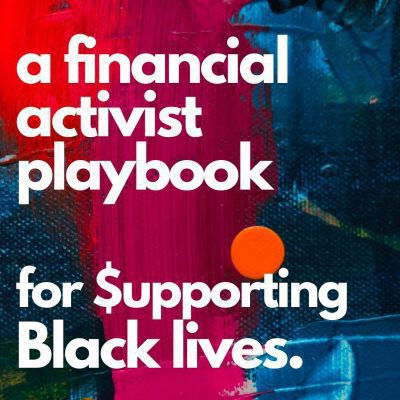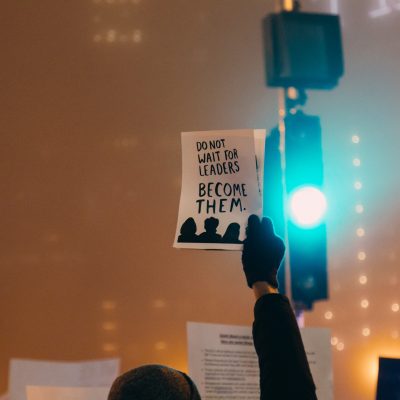Article
Investments and financial planning are often seen as unapproachable issues, especially when the overwhelming majority of the conventional investing methods are removed from local impact and social justice. Senior Fellow Jasmine Rashid decided to tackle this problem with her Action Project, “Real Money Moves.” She began Real Money Moves with mass incarceration and immigrant rights in mind, aware that the way we invest our money is powerful.
It can be said that mass incarceration in the United States has caused, and has been caused by, private prisons. This industry has expanded to immigrant detention centers, meaning that there is a clear economic incentive to keep people incarcerated. Private prisons as institutions, as well as their use of prison labor, have been called the modern form of slavery in the United States. However, most people do not know that their money has been used to invest in these prisons through major banks. Jasmine aimed to address this problem on multiple fronts. In addition to educating consumers and investors about the ties that their money may have with private prisons, she campaigned against for-profit detention centers at the US- Mexico border and against private prison financing. Through these initiatives, Jasmine was able to help others ethically and sustainably invest their money, while also adding to the anti-privatization movement in prison and detention center industries.
Her project took form with three campaigns. The first involved “influencers” such as NFL players and the cast of “Orange is the New Black.” By having them publicly divest from private prison stock and commit to keeping private prisons out of their portfolios, they were able to draw attention to the problem and lead the charge in divestment. Since these influencers have large followings on social media, they used these platforms to urge their followers to do the same. In addition to leading by example, a select group even committed a total of $10 million to social investing, meaning that that money will be invested in companies and causes that align with their values.
Influencers publicly divested from private prison stock and committed to keeping private prisons out of their portfolios. They drew attention to the problem and led the charge in divestment.
The second part of her project directly worked on the issue of for-profit immigration centers. The horrible treatment of migrants and the forced separation of families gained global attention during the past four years, helping to prompt the #FamiliesBelongTogether Corporate Accountability Committee. This committee, consisting of over 100 grassroots organizations around the country, works towards ending for-profit detention centers. Their activism varies from public protests to conversations with corporations and investors. Jasmine joined this campaign by working on the campaign strategy and execution.
Lastly, Jasmine appealed directly to consumers, everyday investors who may not be aware that their money can make a difference. She urged consumers to “break up” with their banks if their banks did not commit to ending ties with private prisons. Since private prisons have historically relied on “Real Estate Investment Trusts,” which are tied with bank credit lines and term loans, banks have a large impact on their day-to-day needs. Since the beginning of the campaign, JPMorgan Chase, Wells Fargo, Bank of America, SunTrust, BNP Paribas, Fifth Third Bank, and PNC have publicly committed to ending their financial ties with private prisons. This represents 87.4% of available private prison financing. There should not be an economic incentive to keep people locked up. Money should be kept out of the justice system.
There should not be an economic incentive to keep people locked up; money should be kept out of the justice system. Jasmine confronted this problem by tackling the very thing that made it economically profitable — money. Her campaign has contributed to impactful and lasting change, proving that everyday people have power in their investment and consumer choices.
Jasmine is continuing her work, with the support of Humanity in Action. She is currently working on publishing the Financial Activist Playbook, a book on how people can sustainably and ethically invest their money. Jasmine’s Financial Activist Playbook is one of the four grant winners of the 2020 Racial Equity Grant.





